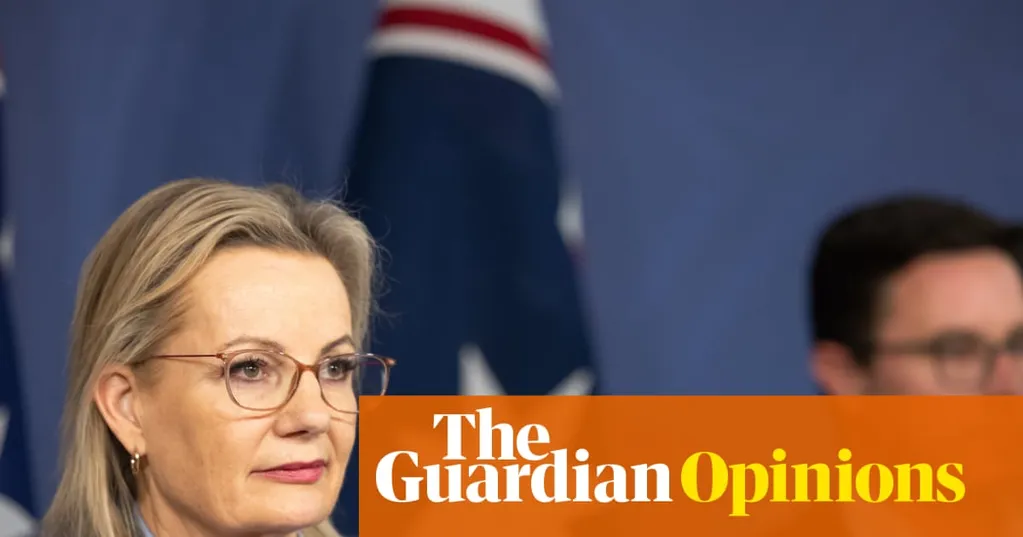The emerging 'debate' about immigration is a cruel example. It's distracting us from addressing the issues that would improve lives.
The Liberal-National Coalition, a political "party" that has almost no chance of assuming office before the 2030s, is being allowed to set the Australian political agenda.
From a short-term tactical perspective, you can see why this may be attractive to the government. Let them squabble. If the attention is on the opposition, there is less focus on what those with their hands on the levers of power are actually doing.
But like all tactical measures it only works in the short term.
Ever since the National party upset the tentative consensus - that it was past time that First Peoples had meaningful and permanent recognition in Australia - the Coalition's tail has been wagging the dog. One Nation, once the home of reactionary, racially framed views, is now gathering supporters as its ideas enter the mainstream.
David Littleproud clearly likes the power of agenda-setting as leader of the Nationals. It is decades since his party played such a pivotal role.
For weeks, too much time and attention has been devoted to the resolution of policy issues that have beset the Coalition for decades - net zero emissions and migration numbers. Promises that by any reasonable assessment they will not be able to make good on and, if they did, would probably cause economic and social chaos.
Allowing the opposition to set the national agenda has provoked an absurd situation that is debasing national politics, stymying important decisions and distracting us from the issues that really need to be addressed to improve lives and opportunities - in health, education, the care sector, inequality, social cohesion, climate change and innovation.
Maybe in an unhinged world this is what happens - any sense of proportion is lost and yet another rabbit hole beckons us to come on in and have a look around.
When in the burrow the big questions grow dim. Everyone wants cheaper energy but saying that repeatedly won't make it happen. Infrastructure is under pressure but cutting migration numbers won't magic that away.
These structural issues are decades in the making, and for too long Australia has cruised: one of the richest countries in the world, with the strategic benefit of being a continent, a population less than some cities and relatively robust institutions.
But it is one where - as Sean Kelly points out in his Quarterly Essay The Good Fight: What Does Labor Stand For? - political leaders have stopped trying to define their ambitions and even an expansive sense of the nation, partly because of the fear of failure.
Incrementalism will do, even if that produces a vicious cycle of cynical disengagement. "This means you can't attempt large things, because they might fail and provoke more cynicism," Kelly writes. "So you do small things that seem more likely to succeed. But because they are so small nobody notices them - which only breeds more cynicism about the effectiveness of government."
The emerging "debate" about immigration is a cruel example. Australian politicians love to boast that the country is the "greatest multicultural nation in the world". Saying it repeatedly doesn't make it true.
The turnaround from the nation that was proudly founded on an exclusionary migration policy is remarkable. The fact that millions of people have come from elsewhere and made happy and successful lives in Australia is something to be proud of. But the shadow of the old approach lingers in the national DNA, and things are now being said in the public debate that would have been unacceptable just a few years ago. Many of those who have come to this country from elsewhere - about a third of the population - still feel that their place here is "conditional". After all, if they maintain two passports, as many choose to do, they can't stand for election to the federal parliament.
Over the past month I have spoken at public events about the idea of Australia. At every one, people have said how threatened they felt by the shadowy March for Australia and the increasingly frequent neo-Nazi rallies. Some spoke about how, as visibly non-Anglo people, they felt their contribution, wellbeing and safety was threatened. How the talk about multicultural success felt performative. How any bamboozling discussion of migration using big numbers missed the point that real people's lives are at stake. How without an immigrant workforce whole sectors of the economy would collapse.
When Pauline Hanson was disendorsed from standing as a Liberal party candidate in Oxley in 1996 for expressing racist views that the party at the time deemed unacceptable, no one anticipated that three decades on she would be heading a party that behaves like a sheepdog rounding up a flock.
Now she draws cover from the cruel actions of her dining companion at Mar-a-Lago and once again another prime minister steps cautiously around the issue.
If only it were as easy as saying, as Amyl and the Sniffers frontwoman Amy Taylor did as she accepted the Aria award for album of the year, "As the new prime minister of Australia, I'd like to say: all immigrants welcome."
Instead, as Kelly writes, the prime minister we actually elected "avoids conflict, postpones it indefinitely. As long as he does so, he inevitably helps those who benefit from things hewing close to their current condition."
That's the danger of allowing a political party that polls show is currently unelectable set the agenda. Labor might become the natural party of government but have little to show for it.
